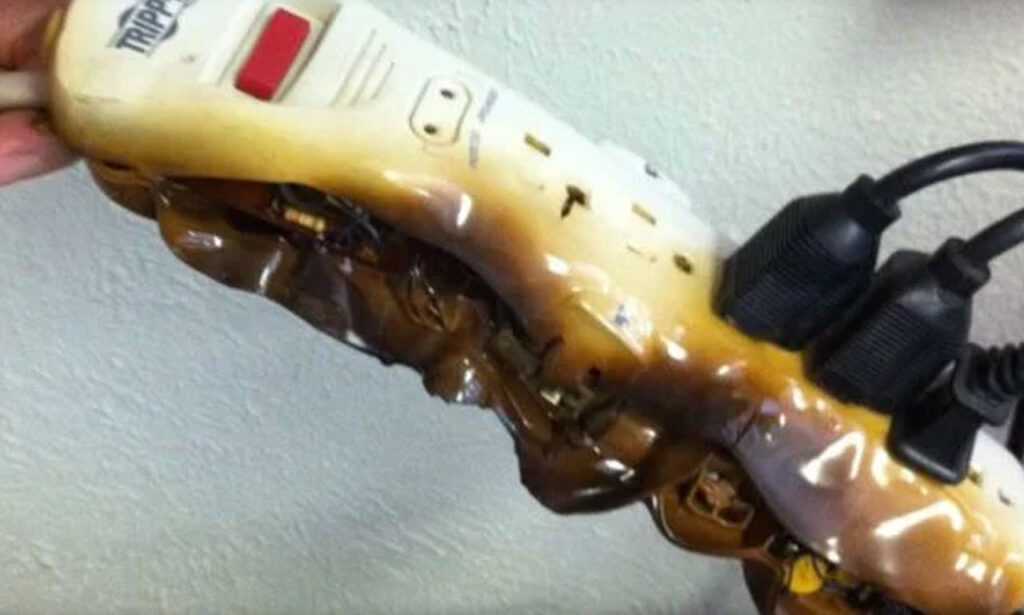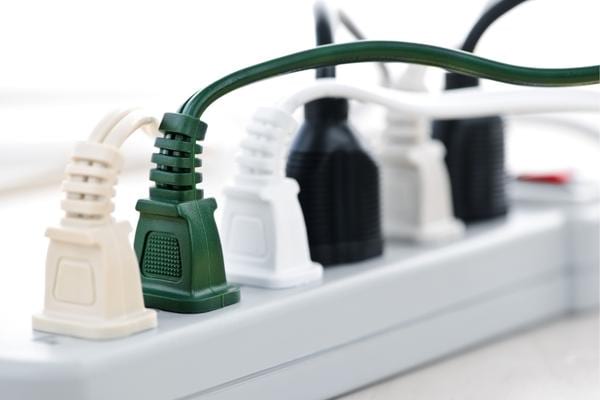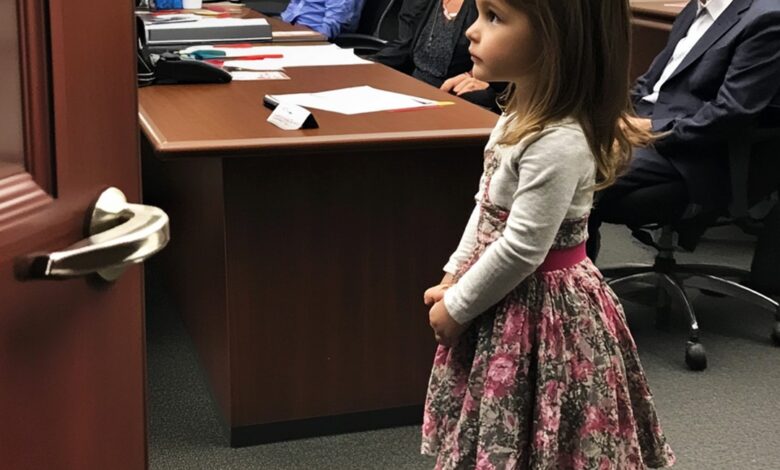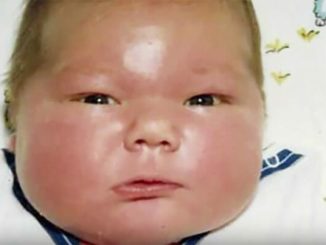
When we think of the past, one of the first thoughts that runs through our mind is how people lived without electricity. Nowadays, we can’t even imagine a day without it because all of our appliances and devices run on electricity.
The truth is, however, that most homes don’t have enough power outlets to keep everything running and charged, so most of us rely on power strips without being aware that appliances that consume a lot of energy become dangerous fire hazards when we plug them into a power strip.
Although power strips are the thing to go to when it comes to charging your phone or power an entertainment setup, there are certain devices that should never be plugged into a power strip.
Air conditioners, space heaters, toasters, and other appliances that use high wattage can easily cause power strips to overheat, which can easily lead to a fire hazard.

Even before plugging anything into a power strip consider the ammount of power they support. This is usually listed on the product itself.
High-capacity appliances need to draw a lot of power through an electrical circuit to work. Keep in mind that an appliance does not need to be large in size to draw large amounts of power.
Below is the list of appliances that should never be plugged into a power strip.
1. The oven: Even though the oven is not used continually, it is a power-hungry appliance that should not be plugged into a power strip. In fact, it should be plugged into its own wall outlet on its own circuit.
2. Refrigerator: Refrigerators require a lot of power and frequently cycle on and off which can easily overload a power strip and cause damage. Much like the oven, refrigerators require a wall outlet dedicated solely to powering the appliance.

3. Washing Machine: When turned on, washing machines pull a lot of power. This is the main reason why these appliances shouldn’t share a receptacle with any other appliance or device.
Most washing machines use a max of up to 1400 watts, putting it dangerously close to the max load of most power strips. On top of that while working, washing machines are usually left unattended and work longer hours, at least an hour, which is long enough for a power strip to overheat.
4. Heating: Portable heaters should never be plugged into a power strip because most of them use 1,500 watts of energy on their high setting and they usually run for extended periods of time.

5. Microwave: Since they consume a lot of energy when used, most microwave ovens are plugged into their own receptacle and that is always a good practice.
6. Coffee Maker: Those who own a coffee maker are not fully aware of the power these appliances use, and this is why they should never be plugged into any sort of power strip or extension cord.

7. Toaster: You may think that browning up slices of bread or bagels doesn’t require a lot of energy, but the truth is that toasters use a lot of energy when in use and they should be plugged directly into the receptacle rather than a power strip.
8. Another Power Strip: Power strips are not meant to be used in conjunction with another power strip, although many people do exactly that. This, however, violates most safety codes because it can easily lead to overloading the electrical system.
9. Electronics (Computer, TV, Router): These types of electronic devices don’t necessarily use a lot of power on their own, but they are sensitive to surges and you can find yourself with a burnt out computer or TV very quickly if you plug them into a power strip.
If you want to protect these sensitive devices from power surges, opt for a power strip that functions as a surge protector.
Greedy Heirs Tried to Earn Favor with Grandpa to Inherit More, Their Jaws Dropped When the Lawyer Read the Will

“You always have room for one more,” his late wife would say with a gentle smile. Mr. Lewis believed in giving back and creating a life of meaning through acts of kindness.
But in his later years, the family that had once filled his home with joy grew distant. His children rarely visited, except when they needed something.
“Dad, it’s tough out there. Just need a little help,” his eldest son, Richard, would say, barely making eye contact before asking for money.
Olivia, his daughter, was no different. “Dad, the kids’ school fees are outrageous. Could you—” she’d start, and before long, he’d be reaching for his checkbook.
Even his grandchildren only came around during holidays, eyeing his home and wealth more than they ever looked at him.
When Mr. Lewis received his terminal diagnosis, he called his family to share the news. Within hours, they flocked to his mansion, putting on their best performances as the “devoted” children and grandchildren.
“We’re here for you now, Dad,” Richard said, patting his father on the shoulder with forced affection.
“We’ve got you, Grandpa,” echoed his teenage granddaughter, Willow, her eyes barely leaving her phone as she spoke.
For weeks, they hovered around him, offering tea they hadn’t brewed themselves and empty words they didn’t mean. Mr. Lewis saw through it all. They weren’t there out of love—they were there for the money. He was no fool, and though his heart ached, he knew exactly what was happening.
When Mr. Lewis finally passed away peacefully in his sleep, the family immediately shifted their focus to the inheritance. The day of the will reading, they packed into the lawyer’s office, eager to claim their share.
“I bet Dad left the most to me,” Olivia whispered smugly.
“Please,” Richard scoffed. “I’m the one with the business sense.”
But the bickering ceased when Mr. Alaric, the family lawyer, entered the room—accompanied by a quiet, 13-year-old girl none of them recognized.
“Who’s the kid?” Richard blurted out, his confidence fading.
“This,” Mr. Alaric announced, “is Harper. She’s here for the reading of the will.”
Confusion rippled through the room as the family exchanged puzzled looks. The lawyer’s next words left them speechless.
“Harper is the sole heir to Mr. Lewis’ entire estate.”
The room erupted into chaos. “What are you talking about?!” Richard shouted. “She’s just a kid! Dad would never do that.”
Olivia’s voice rose in disbelief. “This is absurd! We’re his family—his blood!”
Mr. Alaric raised his hand for silence. “I know this is a shock, but Mr. Lewis left a letter explaining his decision. Allow me to read it.”
The room fell silent, thick with tension, as the lawyer began.
Dear Family, the letter began, I know you’re probably confused, maybe even angry. But please hear me out. Over the past few years, Harper has been my greatest source of joy. She’s the little girl who lived next door. Long before any of you noticed, Harper saw that I wasn’t well. She’d see me struggling to get the mail or sitting alone on the porch.
Harper shifted uncomfortably as all eyes turned toward her, but she stayed quiet, her hands clasped.
Harper visited me every day. Not for money, not for favors. She came to share stories, play cards, or just sit with me. She made me feel less alone. In the years when I needed family the most, Harper was there.
Richard rolled his eyes. “We were busy living our lives, Dad. You should’ve told us you were lonely.”
Ignoring the interruption, Mr. Alaric continued reading.
What you don’t know is that Harper has her own battles to fight. A few months ago, she was diagnosed with a terminal illness—one no child should ever have to face. Despite her struggles, she’s remained a light in my life. She deserves the chance to live her dreams, no matter how short her time may be.
A stunned silence fell over the room as Mr. Lewis’ children absorbed the revelation. Even Olivia, who had been fuming moments earlier, sat quietly, tears welling in her eyes.
By the time you hear this, I’ll be gone. Harper may only have a year or two left, but I’ve made sure she has everything she needs to live those years to the fullest. Instead of fighting over my money, I hope you’ll support her in the way she supported me. Harper showed me love when none of you did. Remember: love is the greatest inheritance.
Mr. Alaric folded the letter, leaving the room heavy with the weight of Mr. Lewis’ words.
Harper stepped forward, her voice small but steady. “Mr. Lewis was my friend. I never wanted his money, just his stories and time.”
Richard cleared his throat, ashamed. “Harper, I’m sorry. We didn’t know…”
“I’m going to use the money to travel with my parents, eat ice cream for breakfast, and live as much as I can,” Harper said. “When I’m gone, the rest will go to other kids who are fighting like me.”
Tears streamed down Olivia’s face. “You’re so brave, Harper. I hope you get to do everything you dream of.”
Over the following months, Harper did just that. She visited the Eiffel Tower, dipped her toes in the ocean, and filled her days with laughter and love. When her time came, she passed away peacefully, surrounded by those she loved.
True to her wishes, the remainder of Mr. Lewis’ fortune was donated to charities that supported children with terminal illnesses, funding research and helping families in need.
Harper’s legacy became a symbol of the power of kindness and the impact of genuine connection. And for Mr. Lewis’ family, the lesson was clear: wealth isn’t measured by money, but by love. Harper had taught them all the true value of life.



Leave a Reply